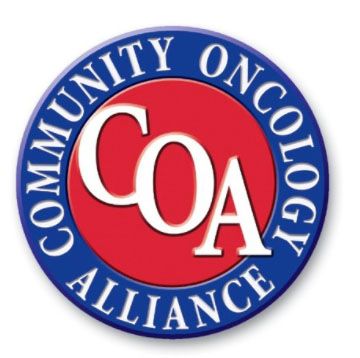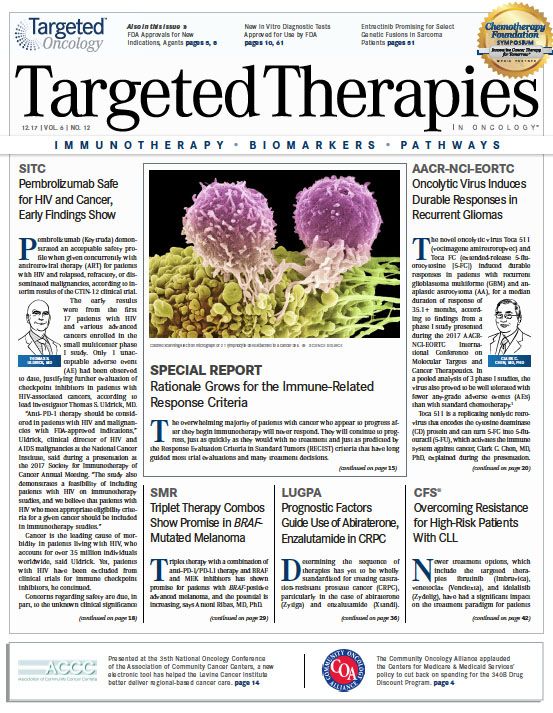Mixed Reactions to CMS Policy to Cut Back on Spending in 340B Program
A new Centers for Medicare & Medicaid Services (CMS) policy to redistribute savings under the 340B Drug Discount Program has been greeted by a mixture of praise and criticism from supporters and critics of the program.

A new Centers for Medicare & Medicaid Services (CMS) policy to redistribute savings under the 340B Drug Discount Program has been greeted by a mixture of praise and criticism from supporters and critics of the program.
The Community Oncology Alliance (COA) was one such organization to offer immediate praise for the CMS policy change. “This final rule is good for patients and taxpayers and represents an important first step in stopping abuse of the program by some hospitals. It will help steer the program back to its original courseacting as a safety net to help patients in need,” COA said.
The policy is endeavoring to save money for Medicare beneficiaries on co-payments, with an expected estimated savings of $320 million in 2018 as a result of the change. “CMS is helping to lower the cost of prescription drugs for seniors and other Medicare beneficiaries by reducing the payment rate for certain Medicare Part B drugs purchased by hospitals through the 340B program,” the agency said in a statement.
The 340B program lets participating institutions acquire drugs from manufacturers at deep discounts of up to 50%, and the intent has been to better enable hospitals to afford the charity care that they provide. However, critics have charged that the program has been exploited for the revenue advantages available through the discount purchases and that savings often are not passed along to patients. Further, they allege that 340B has fueled a massive increase in hospital expansion and created a competitive disadvantage for independent clinics that are not eligible to participate.
Specifically, the Medicare Hospital Outpatient Prospective Payment System (OPPS) rule would adjust the amount CMS pays for Part B drugs purchased through 340B to average sales price (ASP) minus 22.5%, as opposed to the current rate of ASP plus 6%.
The policy change does not affect payment rates for “rural sole” community hospitals, children’s hospitals, and certain cancer hospitals that are considered to serve highly vulnerable populations. The rule change also removes patient-care barriers by including a provision that places a 2-year moratorium on direct physician supervision requirements for rural hospitals and critical access hospitals.
“CMS understands the importance of strengthening access to care, especially in rural areas,” CMS Administrator Seema Verma said in a statement. “This policy helps to ensure access to outpatient therapeutic services for seniors living in rural communities and provides regulatory relief to America’s rural hospitals.”
However, the OPPS final rule earned immediate condemnation from the American Hospital Association, which stated that the change would “dramatically threaten access to health care for many patients, including uninsured and other vulnerable populations.” The group contended that rather than lowering the cost of pharmaceuticals, the policy change would lead to increases in Medicare beneficiaries’ out-of-pocket costs for nondrug Part B benefits. The group urged CMS to “abandon its misguided 340B rule” and focus on other ways to reduce drug costs.
The Alliance for Integrity and Reform of 340B (AIR340B), a coalition of patient advocacy groups, clinical care providers, and biopharmaceutical companies, has long sounded the alarm over the growth of 340B relative to what it says has been a somewhat small patient benefit. Sales for 340B drugs measured $16.1 billion in 2016 and are expected to reach $18 billion this year and $19.6 billion in 2018, the group has estimated. It has claimed that 64% of 340B-participating institutions have charity care rates below the 2.2% national average for all hospitals.
“We applaud the administration for taking action to help address one aspect of the 340B program that has been leading to higher costs for Medicare and its beneficiaries. Moving forward, AIR340B will continue to focus on the key policy priorities that our members believe require immediate legislative and/or regulatory action to better align the program with its original intent of helping vulnerable patients. Areas for change include clearly defining a 340B-eligible patient, examination of hospital and satellite clinic
eligibility criteria, and a more rational and legally supportable policy on contract pharmacy arrangements,” AIR340B said in a statement.
The OPPS rule also has provisions that would make payments available when Medicare beneficiaries receive certain procedures in a lower-cost settingthe outpatient department. Such payments would apply to several types of procedures, including total knee replacement.
Established in 1992, the 340B program required drug manufacturers to provide outpatient drugs to eligible healthcare organizations and covered entities at reduced prices.
Reference:
CMS finalizes policies that lower out-of-pocket drug costs and increase access to high-quality care [news release]. Baltimore, MD: Centers for Medicare & Medicaid Services Newsroom; November 2, 2017. cms.gov/Newsroom/MediaReleaseDatabase/Press-releases/2017-Press-releases-items/2017-11-01-2.html. Accessed November 2, 2017.

Survivorship Care Promotes Evidence-Based Approaches for Quality of Life and Beyond
March 21st 2025Frank J. Penedo, PhD, explains the challenges of survivorship care for patients with cancer and how he implements programs to support patients’ emotional, physical, and practical needs.
Read More